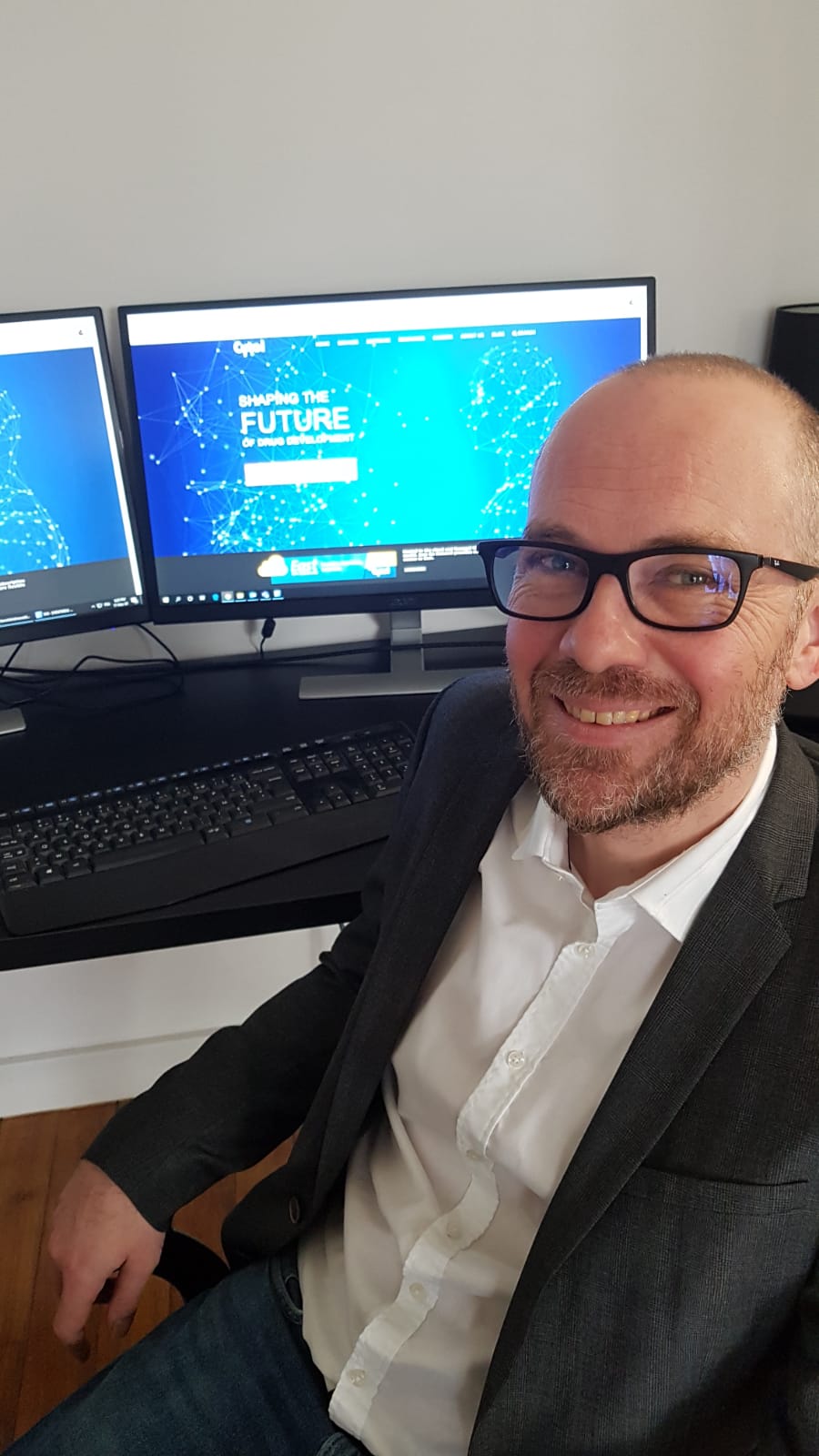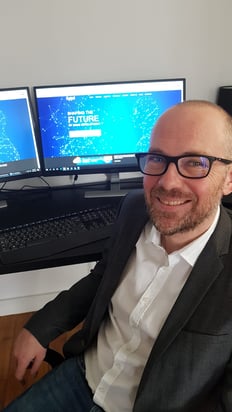Career Perspectives: Interview with Marc Lefebvre-Gouy, Statistical Programmer

 Cytel has industry-leading experts in Statistical Programming with years of SAS® Programming expertise and in-depth knowledge of the specific clinical subject matter. Their insights into strategy, and high competence in project management ensure a new twist on the traditional CRO.
Cytel has industry-leading experts in Statistical Programming with years of SAS® Programming expertise and in-depth knowledge of the specific clinical subject matter. Their insights into strategy, and high competence in project management ensure a new twist on the traditional CRO.
In February 2020 we interviewed Marc Lefebvre-Gouy who is a lead statistical programmer at Cytel in France. Marc made a career transition from genetics to statistical programming and in this interview, he speaks to us about programmers working across therapeutic areas, programming challenges across phases of a trial, and the top technical competencies every programmer must have. He also gives us a sneak peek of his hobby of cooking and his love for wine.
Tell us about your journey from genetics to statistical programming. How does training in one lead to success in the other?
I have a background in genetics and molecular engineering. The goal of our investigation at the time was to genetically transform some bacteria to make them perform specific functions. Strangely, there are similarities between updating bacteria genetic material (the operationalization of which needs code) and coding a program for a statistical analysis. Hence, I was able to comprehend the coding language and tools because of my previous experience. Obviously, coding a program for a statistical analysis can be done much faster and it does not take months and years, unlike the time required to create a Genetically Modified Organism. I think there is a link between both the fields and that has helped me immensely.
What is your role at Cytel?
I am a lead statistical programmer at Cytel, and I manage a team of programmers around specific projects.
As someone who has worked across therapeutic areas, what are the different challenges in workflow and validation in cardiovascular versus HIV or oncology?
Yes, the challenges are different. I did not understand this at the beginning of my career. I used to think coding is coding, how can it vary with different therapeutic areas? Eventually, I learned that you need to have enough knowledge in each of the therapeutic areas so that you can ensure consistency and detect inaccuracies in the database. We need to know when a finding is unlikely, to at least double check whether it is the result of human error. In Oncology, where you need to calculate complex tumor responses indicators, it is a necessary skill to understand what is going on. Having those on the team who are aware of this therapeutic area enables insights.
Cytel encourages creating data strategy early for the entire clinical development program, as opposed to phase by phase. Tell us a bit about programming challenges across phases of a trial?
At Cytel, we organize our strategy, not by phases, but by a whole clinical development program. We use many tools and all our strategies are well defined. At the onset of any project, the challenge you face as a leader is to ensure that everything is extremely organized. You cannot afford to waste time and efficiency by not taking advantage of the context of the development programs that have already been built. This philosophy followed here at Cytel is something that I had not experienced in the past.
While building a strategy we do not focus only on the study but on the entire project of our customer. You need to take the time to analyze and check all the boxes before you start building your first software program and the backbone of your project. This enables us to evaluate future needs. And, as I mentioned before, for existing customers, there can be a scope of using what is already built and improvising on it, to make it better. It is good to be working at a place where technique is given so much importance.
What functions do you collaborate closely with?
As a lead programmer, I need to interact closely with biostatisticians. They provide us with clarifications that are necessary to resolve any customer issues. They ease design issues, i.e. when creating databases for adaptive designs. I also need to collaborate with data managers as they are the ones who provide us with the data and take care of any problems or ambiguity with the data. We also work with the global project managers on budgets, resources and other similar aspects of the project.
What are the top three attributes or technical competencies a programmer must have?
I believe a programmer should be curious and eager to learn. Your curiosity will help you in improving your skill, checking what is new in your programming language and learning from others. Secondly, you should not be arrogant about the knowledge you possess. There will always be things for you to learn and you should be open to this exchange of skills with your peers in the industry. Lastly, it is very important to be patient and cautious in programming. Do not get too eager to code without thinking carefully about the project in hand. You may get the results but most likely, several issues may crop up in the future. So, don’t jump the gun, and be sure to take the time required for careful analysis.
Can you share some of your achievements with us?
Recently, I built a macro program for a project. You can use different parameters for different studies and evaluate the toxicity of the adverse events by using this program. Several of my colleagues borrowed my program for their projects. So, now it is not restricted to my project alone. It is helping other programmers and we are working on improving it so that it becomes something standard that can be used when it is strong enough.
What would be your top tips for early career statistical programmers looking to develop in this field?
I would strongly advise the young programmers to focus more on algorithms and not on the programming language alone. The beginners usually put more emphasis on the programming language but from my personal experience, I can say that learning the algorithm is more important. Algorithms allow you to code relevant things, whereas programming language is just the tool to edit it. I always use this example to make my point - you are lost in a foreign country and need to ask a local for directions to find your hotel. What will help you the most - a person who is fluent in English but with no information on your hotel location, or a person with basic English language skills, who also perfectly knows where your hotel is?
This is especially true to ensure project efficiencies across all inputs. Additionally, I have seen that it adds another dimension to problem solving insight.
What are your main interests outside of work?
I spend my free time with my family, and I enjoy cooking occasionally. I am French and I obviously love drinking wine. I like solving logical puzzles so, in my free time, I also test strategy-related computer games.
Thank you for taking the time to talk to us and sharing your journey.
Careers
Cytel's Statistical Programmers are active and well regarded in industry associations and communities around the world. Would you like to join our talented team? To find out more about rewarding careers with us click below.


